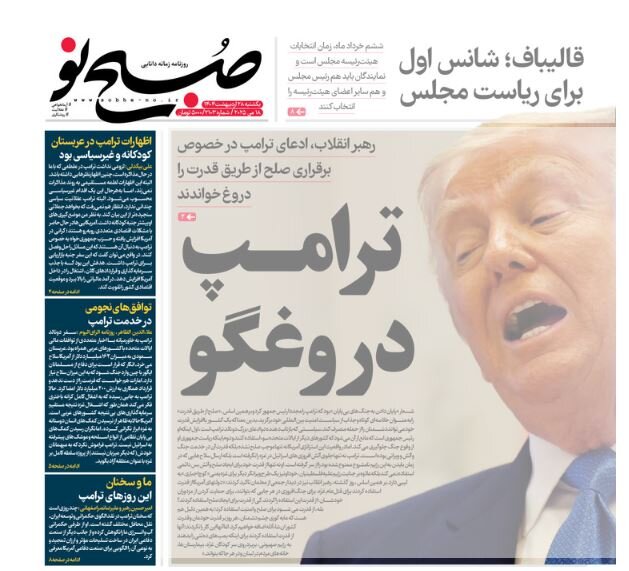The possibility of reviving JCPOA or a new version

TEHRAN - Sobh-e-No wrote about the recent developments regarding the Iran nuclear file.
The paper said: The recent developments in the Iran nuclear file are not limited to technical talks or disagreements over the number of centrifuges. The developments should be analyzed within a geopolitical and multi-layered context, where different actors - from the United States to Europe, the Persian Gulf states, and even China and Russia - look into the Iran file with varied interests and calculations. Iran's nod for an agreement could be an attempt to neutralize the "Iranophobia" project and rebuild Tehran's image as a flexible actor. Given the legal and political complexities of fully reviving the JCPOA in its current structure, many analysts believe that in the event of an agreement, what will happen will be "JCPOA II" or, to be more precise, a temporary agreement limited to the nuclear field with more practical guarantees and lesser obligations. This type of agreement could lift some of the sanctions in the short term and give a sigh of relief to Iran’s economy without requiring a full return to the terms of the 2015 agreement.
Ettelaat: Why is it difficult for Iran to negotiate with US today?
Ettelaat spoke with Mehdi Zakerian, an analyst on international affairs, about the challenging atmosphere of the negotiations. He said: The fact that the Americans say “either you negotiate or we will fight” means that they have realized that they can gain the highest score in negotiations with Iran. They have built the foundation on negotiations to achieve their demands from Iran. When the negotiating party realizes this, the popular support of the other party is undermined, and they abuse it and think about imposing their own conditions. Unfortunately, in the days when our influence in the region was higher and the social capital of the political system was greater than today, many attacked the JCPOA, and therefore valuable opportunities were easily lost. But now, in a situation where Iran's position in the region has changed and the economy is in crisis, we have entered into negotiations. It is quite natural that in such a situation, America would see itself as superior and want to impose all its demands on Iran. In any case, all countries try to gain the most benefit for their country and people. The missed opportunities have caused Iran to negotiate with America in a difficult situation.
Arman-e-Melli: An agreement will benefit the public
In a note, Arman-e-Melli examined the effects of a possible nuclear agreement on Iranian society. It wrote: Negotiations between Iran and the United States are underway. And as both sides say, there is a relatively positive atmosphere in the negotiations, which has led the parties to talk about the possibility of an agreement in a short time. Now the question is what benefits the people will receive if a new agreement is reached. In the current situation, an international agreement between Iran and the United States can definitely have a significant impact on society, especially in terms of the economy. If an agreement is struck, the value of foreign currencies against national currency rial will surely decrease, and consequently, it will have an impact on the prices of goods. However, if the negotiations are disrupted, differences between political groups will increase, which in itself could be a threat to the negotiations. In addition, it could weaken people's hope for an improvement in their economic situation.
Jam-e-Jam: Challenges of the three European countries and their reduced role
In an analysis, Jam-e-Jam discussed the meeting of senior diplomats of Iran and three European powers (France, Germany, and England) in Istanbul and said: The three European countries are facing numerous dilemmas in these negotiations. On the one hand, they are trying to preserve the spirit of the JCPOA, and on the other, they must manage their concerns about Iran's nuclear activities. However, Europe's influence has decreased as the U.S. has entered indirect negotiations with Iran. Europe is trying to strike a balance between preserving the agreement and applying diplomatic pressure on Iran. However, the U.S. position has caused Europe's role to become somewhat marginal. This situation has limited Europe's diplomatic maneuvering power and created new challenges for the foreign policy of these countries. Iran is concerned about the efforts of some parties to apply more intense pressure in the form of the snapback mechanism, which could raise tensions to an uncontrollable level. Iran has attempted to pursue a diplomatic path that serves national interests while maintaining its nuclear positions.
Leave a Comment